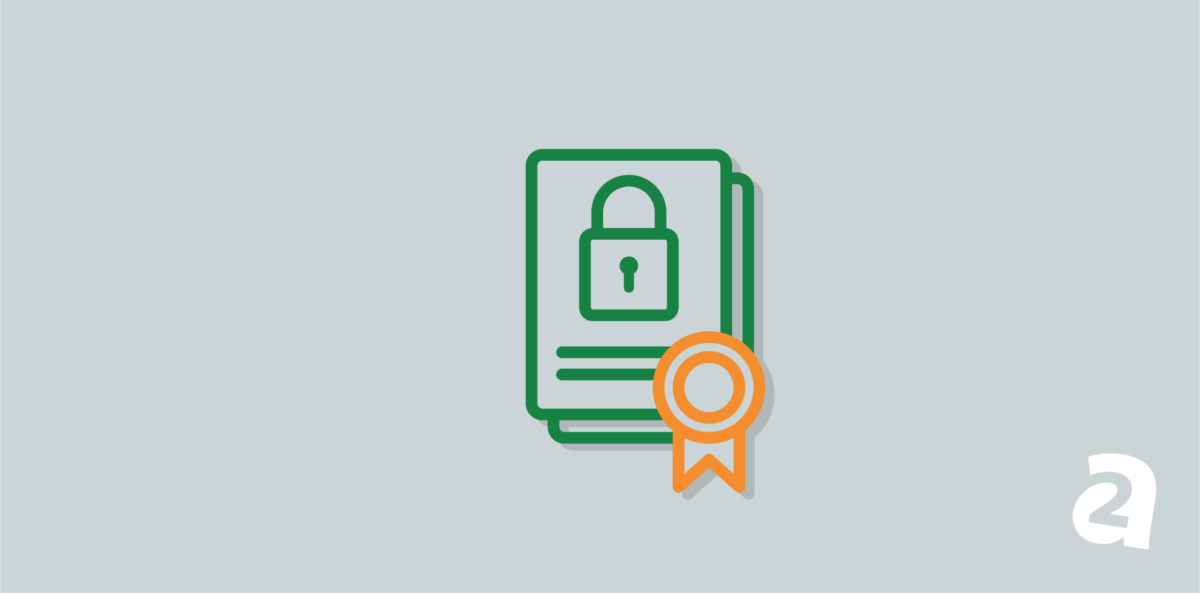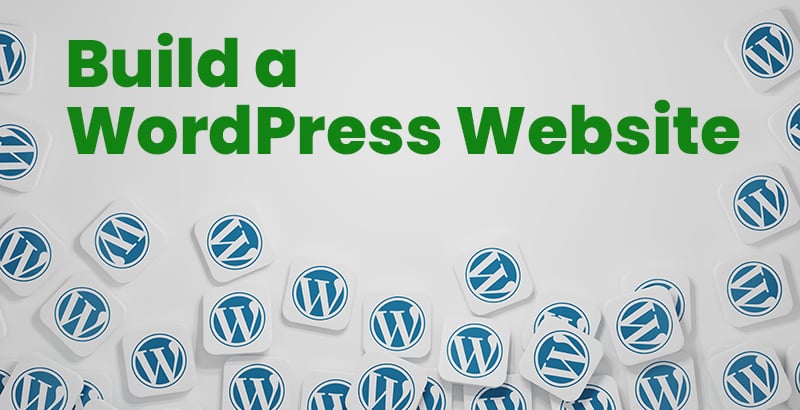- May 17, 2021
 0
0- by A2 BizDev
While your customers may never know it, the hosting provider you choose for your e-commerce store has a major impact on their experiences with your business. Hosting can affect many aspects of your website, from how fast your pages load to the security of your shoppers’ information. Therefore, selecting which host to use is not a decision to be taken lightly.
With so much riding on your choice, you may want to consider bare metal dedicated e-commerce hosting for your online business. Compared to some popular alternatives, dedicated hosting gives you a greater degree of control and better performance. It also makes future growth easier.
In this article, we’ll explain why you should think about dedicated hosting for your website. Then we’ll cover seven key criteria to look for in a provider. Let’s go!
An Overview of Bare Metal Dedicated E-Commerce Hosting
When you opt for dedicated hosting, you get an entire server to yourself. The setup is very different from shared hosting, where the server and its resources are divided among several websites.
If you’ve already done some research into dedicated hosting, you may have noticed that you can choose between a managed or unmanaged server:

With an unmanaged plan, you typically have a bit more control, including full root access. If you’re confident in your technical abilities or work with someone who is, this option is highly customizable.
On the other hand, if you’re less tech-savvy, you may be better off with a managed plan. You’ll still reap many of the benefits of dedicated hosting, but you’ll also have a lot more support. This is an excellent choice if you’re just starting out or are switching from shared hosting.
The Advantages of Dedicated E-Commerce Hosting
Dedicated hosting has some distinct advantages over other types, especially when it comes to e-commerce sites. One is that you’ll be able to configure your server to best support your store and install software that you’re comfortable using. Depending on the e-commerce platform you’ve selected, there may be preferred tools to help you get the most out of it.
You’re also likely to see better performance from dedicated hosting. Since your website is essentially your storefront, it’s a significant part of most people’s first impression of your brand. Having a fast, reliable e-commerce store is an excellent way to show that your business is trustworthy and professional.
Of course, dedicated hosting isn’t the only option you have. Many shop owners start with shared hosting, as it’s almost always the cheapest option. However, because you’re sharing resources, it tends to be a less reliable solution. Successful online stores often outgrow shared hosting plans pretty quickly.
A Virtual Private Server (VPS) is another type of hosting you could use. While you won’t share as many resources with others as you would with shared hosting, you’re still hosted on a server with multiple site owners. If you want a server and its resources all to yourself, bare metal dedicated e-commerce hosting is the way to go.
7 Things to Look for in a Bare Metal Dedicated E-Commerce Hosting Provider
Now that you have a better understanding of dedicated e-commerce hosting and why it may be advantageous for your online store, let’s cover what to look for when choosing a provider.
1. High Performance
When it comes to website speed, there’s no such thing as too fast. In fact, nearly 70 percent of consumers say page speed impacts the likelihood that they will buy. Losing out on conversions due to slow loading times can hurt your bottom line.
As mentioned, an advantage of dedicated hosting is not having to share resources with other sites. You have full access to all the power the server can provide. This also eliminates concerns about other sites using more than their share of the available resources.
In addition to site speed, uptime is also worth paying attention to. This is simply the amount of time a website is available. On hosting websites, you’ll see the uptime guarantee expressed as a percentage. Perhaps not surprisingly, you’ll want it to be as close to 100 percent as possible.
Avoiding downtime is crucial for your business’ reputation. After all, if customers can’t access your e-commerce store, they won’t be able to purchase from you. A failed visit may also result in a negative opinion of your brand.
Compatibility with a Content Delivery Network (CDN), such as Cloudflare, is something else to look for. Being able to implement a CDN easily can do a lot to bolster your store’s performance:

If you’re unfamiliar with the technology, a CDN is a widespread network of servers that reduces the distance between your website’s servers and your customers. This helps eliminate poor performance due to latency. Some CDNs also offer additional benefits, such as added security.
You’ll want to be sure your website’s performance won’t suffer during traffic spikes. These surges can happen around the holidays and other heavy shopping times, depending on your industry. You might also experience heavier loads if you’re running a sale, publishing new content, or implementing new forms of advertising.
2. Scalability
One of the main reasons you may opt for dedicated e-commerce hosting is that you want the flexibility to grow your business. However, you also don’t want to have to pay for resources you may not need yet.
Therefore, when you’re shopping for hosting, we recommend taking scalability into account. Swapping providers or plans can be quite an undertaking, so consider giving yourself a bit of room to grow. You also don’t want to get locked into a long-term contract that doesn’t grant you access to more resources when needed.
While it’s tricky to anticipate future business growth, there are a few aspects of scalability you can consider. Perhaps one of the most obvious is increased traffic.
As we discussed above, various events can result in temporary traffic spikes. However, hopefully your number of visitors will steadily increase over time as you gain popularity. When you notice this happening, it’s helpful to have the option to upgrade to a more powerful server.
In addition to an increased traffic load, you may also need more resources to expand your catalog. For example, you’ll likely need storage to add pictures or videos of your offerings, and optimized media can take up a lot of space on your server. We suggest checking the upper limit for potential hosts’ Random Access Memory (RAM), so you can anticipate when you might need to upgrade.
3. Security
Whatever your business is, it likely involves handling your customers’ personal information, making you a target for hackers. A data breach can be catastrophic for an e-commerce store and its reputation.
While you really can’t be overcautious when it comes to your shoppers’ data, there are a few specific security features to look for when making your hosting decision. One is the provision of a Secure Sockets Layer (SSL) certificate:

An SSL certificate encrypts your customers’ information, keeping it safe from anyone attempting to steal it. While there are free SSL certificates available, there are advantages to paid options. You’ll likely receive better support and may be able to display a seal on your website, which can help to establish trust.
Some hosts bundle an SSL from a reputable provider with some hosting plans. This is certainly worth considering, as you can save a bit of money while still enjoying the advantages of a paid certificate.
You might also want to look for a host that offers to monitor for malware. It’s a lot easier to stop your site from being hacked than it is to recover a site that’s already been compromised. With security monitoring, you’ll be alerted of any problems, and your host’s support team may be able to help stop hacks before they can do lasting damage.
Of course, sometimes cybercriminals are successful. If that’s the case, you’ll want to know that your hosting provider can help you with site recovery. For example, at A2 Hosting, we offer Server Rewind, which you can use to restore damaged files or databases.
4. Pricing
Running a business is expensive, and you probably don’t want to exhaust your budget on hosting. Scalability also comes into play here because, while you want to grow your business, it’s best not to pay for resources you’re not using. It’s a balancing act, but a host that offers several pricing tiers can make budgeting a bit easier:

Even if you’ve done your homework, you may end up choosing a host that you’re not happy with. Therefore, it’s wise to look for a money-back guarantee. Not only will it give you peace of mind, but it’s also an excellent indicator that a hosting provider is confident in their product.
5. Support
When something goes wrong with your website, you risk losing out on business. So it’s essential that you feel confident you’ll be able to get operations back up and running quickly. Considering hosting providers’ support services may help narrow your decision.
While most hosts offer support, it may look a bit different from one company to the next. Many use ticketing systems where you’ll submit a ticket either via email or a contact form to get started:

Ticketing systems are excellent for solving a variety of problems. You can easily send screenshots of the issue you’re experiencing, and agents can work on the problem themselves or share resources if you’re the DIY type.
If you’re more comfortable on the phone, you may want to look for a host that offers support through that channel. However, in many cases, you’ll have to pay extra for this service and may have to wait for a callback until someone is available to help. Depending on your issue, you might still have to submit screenshots to get sorted out.
Live chat can be an efficient way of getting assistance with quick fixes. Your wait time will likely be shorter than with email or phone support. If your issue requires escalation, the chat agent can help get your ticket in front of the right person:

A robust knowledge base is another possibility for accessing help with simple issues quickly. Whatever your problem, it’s likely been encountered before, and your hosting provider may have documentation on how to fix it.
In addition to how you access help, you’ll also want to investigate when you can contact the support team. Some hosts offer assistance around the clock, which is ideal for online shop owners since you likely have customers wanting to access your site 24/7. Other providers may have more limited hours, so you’ll want to be sure these are workable for you.
6. Ease of Setup
Getting your dedicated server set up can be a stumbling block if you’re not careful. When selecting a host, you’ll want to look into how much technical ability you’ll need to get started, and to maintain your online store in the future.
Perhaps most importantly, you’ll want to check for compatibility with your e-commerce platform. If you already have an established storefront, you won’t want to waste time doing the hard work of configuring your shop all over again with a different solution:

If you plan to handle the technical aspects of your e-commerce store yourself, another consideration is the interface you’ll use to interact with your hosting server. For those who aren’t comfortable with File Transfer Protocol (FTP) or command line management, the better choice may be a plan that uses a control panel such as cPanel:

The main difference between the two is that the command line is text-based, while a control panel is a graphical interface. While the latter offers a bit less customization, it’s much more beginner-friendly. CPanel is an excellent tool if you’re not a developer and don’t plan on hiring one to work on your site.
The availability of a one-click installer can also be highly advantageous for a busy entrepreneur. This feature enables you to install a variety of software without spending the time to configure it. If you’ve ever used a setup wizard, it’s a very similar concept.
Not only might a host offer fast installation for your e-commerce platform, but you may also find additional software that you can add quickly. For example, you might be interested in exploring invoicing or Customer Relationship Management (CRM) software to help streamline some of your business management operations.
7. Automatic Backups
When you back up your website, you’re simply making a full or partial copy of your site and storing it for later use. You can keep the copy locally on your machine or store it in the cloud.
Having a recent backup ready to go can be a lifesaver. If your site is hacked or isn’t working correctly after an update, restoring a backup might be the fastest way to get your e-commerce store back on track:

How often you back up your site will depend on the kind of e-commerce website you have. For instance, if your content or stock changes frequently, you may want to perform weekly or even daily backups.
On the other hand, if you have mainly static content, you can probably get away with less frequent or partial backups. However, you’ll likely still want to perform a full backup if you do a significant overhaul of your shop or add many new stock or services.
In addition to how often you perform backups, you have a choice when it comes to what type of backup to use. A full backup will include your entire website with all of its files. While you’ll undoubtedly want to have one of these handy, full backups can take up a lot of space and may not always be necessary.
Between full backups, you may want to do partial backups. You can download a backup of a specific area of your account. For example, you can create a copy of just your MySQL database.
Your level of comfort should also help to inform your decision. There’s nothing wrong with erring on the side of caution when it comes to your business.
Regardless of the type you choose for your backups, you may want to select a host that offers this service automatically. Being able to “set it and forget” can offer you additional security and free up some of your time.
Conclusion
Choosing a dedicated e-commerce hosting provider is no easy task. It’s a decision that will impact both you and your customers as you interact with your online store.
There’s a lot to keep in mind when shopping for a host. However, performance is one area you won’t want to overlook. Security is another factor that is critical to the long-term health of your online business. You’ll also want to take your own skill level into account to help determine what you’re comfortable handling in terms of setup and troubleshooting.
Ready to get your e-commerce store off to a stellar start? Check out A2 Hosting’s Dedicated Hosting options.
Image credit: Pexels.












